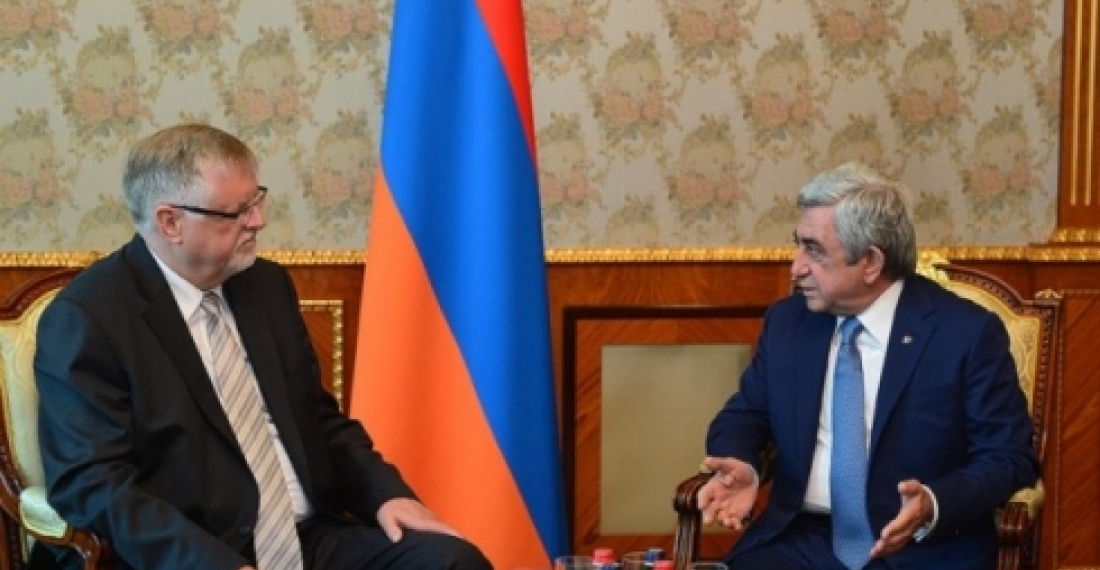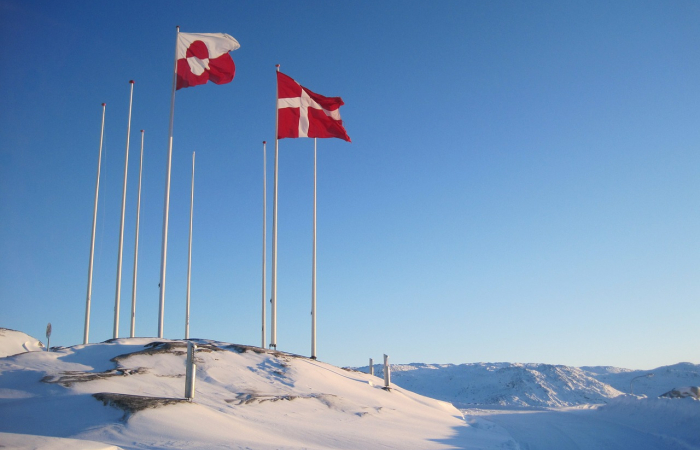The European Union Special Representative (EUSR) for the South Caucasus, Herbert Salber, is currently in Armenia, and on Wednesday he met in Yerevan with Armenian President Serzh Sargsyan.
According to the website of the Armenian presidency, President Sargsyan"underscored that Armenia highly values commitment of the European Union to create a favorable atmosphere for the comprehensive settlement of the NK issue and efforts of the EU aimed at the establishment of peace and stability in the region".
The website added that at the request of EUSR Salber, President Sargsyan "presented Armenia’s efforts aimed at the resolution of the problem through the negotiations conducted with the mediation of the Co-Chairs of the OSCE Minsk Group, and assured that the Armenian side is ready to continue its constructive steps and cooperation for the benefit of peace and security in the region".
The same source reported that in their discussions president Sargsyan and EUSR Salber agreed "that Armenia-EU relations are developing dynamically and that political will and commitment are behind that development. The parties expressed hope that negotiations on the new Armenia-EU framework agreement will be concluded successfully in the nearest future".
EU Special Representative Herbert Salber will also be meeting Armenian NGOs and peace activists during his visit in Armenia.
source: commonspace.eu with the Press Service of the President of Armenia.
Photo: EU Special Representative Herbert Salber and President Serzh Sargsyan of Armenia during their meeting in Yerevan on 6 July. (picture courtesy of the Press Service of the President of Armenia).






